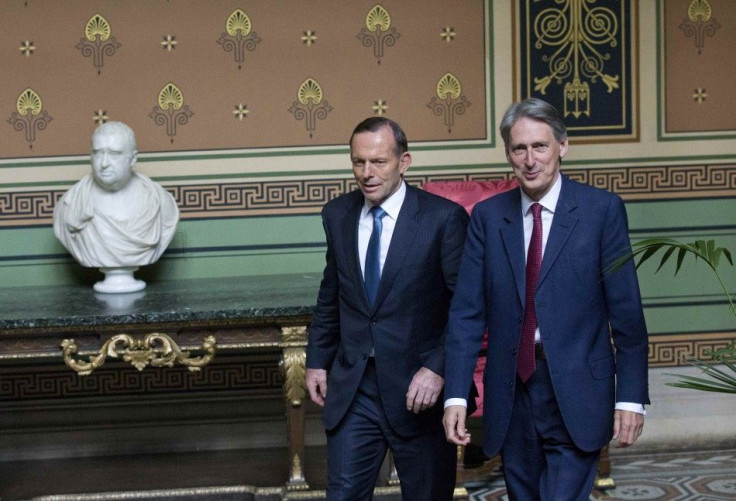UK Foreign Secy Non-Committal On Defence Budget Cut: David Cameron Reportedly Against Chancellor’s Pro Cut Stand

Amidst speculation that Britain may slash its defence spending, British Foreign Secretary Philip Hammond refused to answer the question whether Tories would maintain the current level of defence spending that is more than 2 percent of GDP, in case they are re-elected in the May polls. NATO mandates that its member states should be spending 2 percent of their GDP for defence.
The U.K. minister said such important decisions will be taken only after the defence spending review, to be held in the latter part of 2015. However, Hammond ruled out downsizing the regular army, if the Conservatives are re-elected. He said the Prime Minister does want to "preside over any further cuts in our Armed Forces".
Hammond’s comments have fuelled speculation that Chancellor of Exchequer, George Osborne, might take a relook at the defence spending to balance the debt cutting target. On the issue, he reportedly has differences with Prime Minister David Cameron, reports The Telegraph.
Defence Review
"We have a strategic defence and security review at the beginning of the next parliament and we will set out our plans then," Hammond told BBC’s Andrew Marr show. He said he cannot say what will be there in the Conservative manifesto, and cannot prejudge the outcome of the defence review. But he asserted that the U.K will protect the integrity and strength of armed forces.
The U.K. currently spends 2.07 percent of its annual GDP on defence, which is higher than the NATO’s target of two percent of GDP. Other EU countries such as Germany (1.14 percent) and France (1.5 percent) are already behind the U.K in that respect. Among the big spenders are the U.S. that spends 3.6 percent of the GDP while Russia spent 4.2 percent of its GDP in 2013, according to the World Bank.
PM’s Compulsions
Despite the Chancellor’s keenness to rejig the defense spending, Cameron is not ready to go along with it. He faces international pressure from NATO allies and world leaders to maintain the status quo. President Barack Obama also has urged Mr Cameron that Britain must stick to the NATO spending target. Otherwise, it will be setting a damaging example for other European allies. The U.K. was also cautioned by two former NATO heads against slashing the defence budget, as it will amount to emboldening Vladimir Putin and religious extremists.
Meanwhile, Jean-Claude Juncker, President of the European Commission floated the idea of creating a pan European Union army. "Such an army would help us to build a common foreign and security policy and assume the responsibilities of Europe in the world," Juncker told the German newspaper Die Welt.
(For feedback/comments, contact the writer at kalyanaussie@gmail.com)





















